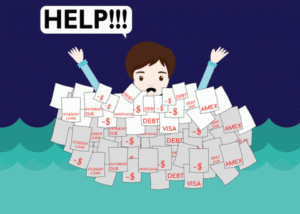3 Ways Living In An Apartment Can Save You Money
 The standard way that we’re all meant to want to live is in a house. A house that preferably has a garden, nice friendly neighbors, and even a white picket fence. That’s meant to be the ideal.
The standard way that we’re all meant to want to live is in a house. A house that preferably has a garden, nice friendly neighbors, and even a white picket fence. That’s meant to be the ideal.
However, the need for space to be utilized as well as possible has meant that apartments are a common feature throughout the country. While they might not be the house that you always dreamed of, they do have a few upsides — despite general opinion running to the contrary.
So if you’re in the process of deciding you want to learn more about an apartment you’re considering, then you’ll definitely want to factor in the potential for money-saving. You need to consider areas such as…
Fewer Security Measures To Be Concerned With
While living in an apartment doesn’t necessarily mean you can leave your front door unlocked like they did in the old days, there’s no doubt you will have fewer security issues to contend with. There is inherent security in the entrance points to your home being at height, while collective security measures for the front entrance and lobby give a shared responsibility for ensuring the building is as safe as possible.
The fewer security measures you have to put in place, the more your saving — but this aspect is particularly beneficial if you’re renting. All the existing security equipment and measures will be maintained by the landlord, meaning your security spend could conceivably be zero.
No Garden To Drain Money From Your Finances
Gardening is an expensive hobby. From the cost of plants to the sheer amount of time you have to give over to maintaining it, if you’re looking for cost-cutting measures, then ridding yourself of a garden is hugely beneficial. As well as gardening itself, you don’t have to worry about the security of the garden or the upkeep of buildings and furniture you use in the garden itself. Combine all of those savings together and they begin to look very substantial.
While you might fret over the lack of outdoor space, you still have the option of public parks if you want to spend time outside. Parks give you the opportunity to enjoy being outdoors and — most importantly — they’re free! Enjoy your time outdoors and leave the expensive maintenance to someone else.
Lower Heating Bills
It’s a little known fact but definitely a reality: apartments are cheaper to heat than houses (though you’ll want to avoid the top floor to maximize this benefit). When you live in an apartment block, the other apartments effectively operate as extra insulation. During the winter, you will immediately feel a difference; apartments are warmer, and you need to use less fuel to keep yourself feeling snug and cosy. If you’re tired of paying a fortune just to keep warm through the colder months, then this could be a real money-saver for you.
So, do you think you could be tempted to move from a house into an apartment — potentially saving yourself a bundle of cash along the way?
















